About this event
The General Insurance (GI) Spring Conference is a result of the General Insurance Lifelong Learning Committee (GILL) combining this year’s 'Current Issues in General Insurance' (CIGI) and 'Technical Issues in General Insurance' (TIGI) conferences into a virtual webinar series over 19 – 25 May that will be available to watch online globally. Covering a mix of high level current insurance industry issues and technical content sessions across all general insurance practice areas.
- Workshop Wed, 19/05/2021 - 09:30 - 10:30 Measuring and Monitoring Climate Change Risks
-
In this talk we explore how insurers can measure and monitor their climate change risk. We outline assessing exposures in a structured way and integrating risk monitoring into business-as-usual processes.
Many insurers already struggle with having too many risk metrics to actively monitor and embed into business decisions. We discuss using climate change risk as an opportunity to optimise risk monitoring, encouraging increased engagement from the board and the wider business.
The measurement of climate change risk from an insurer’s perspective is also a key challenge. To supplement the common method of scenario analysis, we propose a rating-factor driven approach that incorporates relativities by line of business, industry and geography. This approach relies on expert judgement and demands early engagement with the wider business, making it embedded by design. Intuitive and trackable “climate change risk scores” indicate the level of exposure and key risk drivers. Swarm intelligence can also be used to help parameterise the approach.
Speakers:
 Cherry Chan is a member of the IFoA council and she acts as Actuarial Function Holder to a number of clients. One of Cherry’s main areas of expertise is helping our clients on all aspects of Solvency II regulatory compliance, helping clients understand their risk potential, conducting stress and scenario testing and maximising their capital efficiency. Cherry works with clients on climate change through their ORSA processes and wider thought leadership.
Cherry Chan is a member of the IFoA council and she acts as Actuarial Function Holder to a number of clients. One of Cherry’s main areas of expertise is helping our clients on all aspects of Solvency II regulatory compliance, helping clients understand their risk potential, conducting stress and scenario testing and maximising their capital efficiency. Cherry works with clients on climate change through their ORSA processes and wider thought leadership.Cherry is a member of a number of member-led groups, including being the Chair of the London Market Actuaries Group, and a member of the GI Research and Thought Leadership Committee, amongst others.
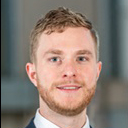 Matt Bett is a senior consulting actuary within the BW Insurance Consulting team, providing advice and services to non-life insurance clients. Matt specialises in capital modelling and internal model validation, having previously worked hands-on within a Lloyd’s managing agent’s capital modelling team.
Matt Bett is a senior consulting actuary within the BW Insurance Consulting team, providing advice and services to non-life insurance clients. Matt specialises in capital modelling and internal model validation, having previously worked hands-on within a Lloyd’s managing agent’s capital modelling team.Matt created and developed the BW ClimaRisk tool to help integrate climate change risk management into GI insurers' decisions. He is experienced in exposure management and integrating climate change risk validation into business-as-usual internal model processes.
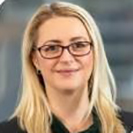 Wendy Kriz has 20 years of general insurance actuarial experience in consultancy, company market and Lloyd’s. Wendy is BW’s GI climate change expert and is a member of the IFoA Sustainability Board. Wendy’s experience extends to all areas of actuarial work including pricing, capital modelling and reserving. She is a model validation expert and passionate about good documentation.
Wendy Kriz has 20 years of general insurance actuarial experience in consultancy, company market and Lloyd’s. Wendy is BW’s GI climate change expert and is a member of the IFoA Sustainability Board. Wendy’s experience extends to all areas of actuarial work including pricing, capital modelling and reserving. She is a model validation expert and passionate about good documentation.Wendy designed and conducted a survey on GI actuary’s work on climate change, using the results to co-author a report: ‘Climate Change: How are (re)insurance actuaries facing the challenges ahead?’.
- Workshop Wed, 19/05/2021 - 12:30 - 13:30 A Motor Fleet Risk Model from Public Data: An Insurtech’s Perspective
-
Claims data often forms the basis of our understanding of risk. But what if your risk model becomes so granular that you simply don’t have enough historical claims data to parameterise it with? Or what if the risks you’re insuring are changing too quickly for claims data to even be relevant at all?
Flock argues for a modular, simulation-based approach to modelling risk. One which models individual claims events separately, where every claim event is parameterised using only external datasets.
Flock’s motor risk model calculates a burning cost dependent on where, when and how a vehicle is driven, all without using any historical claims data. This talk will cover how we’ve used advanced simulation techniques together with Google Street View, computer vision, government-published datasets and vehicle-safety research to define a per-mile motor fleet risk model.
Speaker:
 Rayno Mostert is a South African actuary working on machine learning applications in insurance product pricing and development. His background is a mixture of actuarial science and computer science, and he completed his fellowship exams in general insurance with the Actuarial Society of South Africa. Currently he's based in London, and responsible for risk intelligence at Flock, a government- and VC-backed insurtech startup.
Rayno Mostert is a South African actuary working on machine learning applications in insurance product pricing and development. His background is a mixture of actuarial science and computer science, and he completed his fellowship exams in general insurance with the Actuarial Society of South Africa. Currently he's based in London, and responsible for risk intelligence at Flock, a government- and VC-backed insurtech startup. - Workshop Wed, 19/05/2021 - 14:30 - 15:30 Risk pooling for disaster Response
-
Responding to disasters through risk pooling – providing an insight in to the rise of forecast based financing and how actuaries can help. This session will examine how humanitarian organisations can use forecast based financing and risk pooling principles, alongside mechanisms for transferring or sharing risks, to provide more efficient and effective funding for those most in need. The risks in this context are potential disasters caused by natural hazards in developing countries. This session will provide an overview of the Government Actuary’s Department’s work in this area and will showcase the ways that we can use actuarial techniques to improve the outcomes for vulnerable people in developing countries by using principles that are applicable to many areas of actuarial work. A basic level of technical knowledge in relation to risk pooling and insurance is required for this session.
Speakers:
 Chris Paterson is an actuary in the Insurance and Investment team at the Government Actuary’s Department. He leads GAD’s work on disaster risk finance with clients including the FCDO, World Bank and the Centre for Disaster Protection. Prior to working for GAD Chris worked as a consultant and actuary for KPMG. He is on the IFOA’s Sustainability Research and CPD Committee.
Chris Paterson is an actuary in the Insurance and Investment team at the Government Actuary’s Department. He leads GAD’s work on disaster risk finance with clients including the FCDO, World Bank and the Centre for Disaster Protection. Prior to working for GAD Chris worked as a consultant and actuary for KPMG. He is on the IFOA’s Sustainability Research and CPD Committee. Georgina Bedenham is an actuary in the Insurance and Investment team at the Government Actuary’s Department. Her work covers a variety of different areas including disaster risk financing in developing countries, insurance arrangements within the public sector and contingent liabilities across government. Georgina has been involved in a number of recent projects with the Centre for Disaster Protection, the Foreign, Commonwealth and Development Office and the International Federation of Red Cross and Red Crescent Societies using actuarial and risk management expertise to help support the work these organisations are doing to help those most in need
Georgina Bedenham is an actuary in the Insurance and Investment team at the Government Actuary’s Department. Her work covers a variety of different areas including disaster risk financing in developing countries, insurance arrangements within the public sector and contingent liabilities across government. Georgina has been involved in a number of recent projects with the Centre for Disaster Protection, the Foreign, Commonwealth and Development Office and the International Federation of Red Cross and Red Crescent Societies using actuarial and risk management expertise to help support the work these organisations are doing to help those most in need
- Workshop Thu, 20/05/2021 - 09:30 - 10:30 Original Loss Curves
-
The aim is to demystify the origin and applications of Original Loss Curves. ILFs and First Loss Scales are widely used with London Market Insurance and Reinsurance pricing, however, new entrants or even established practitioners are often asked to use the curves without sufficient knowledge of the following:
- Information about the background and derivation of Original Loss Curves
- Data Limitations and common problems
- Examples of how they can be used in practice
- Practical information about where to source these curves.
- Can we source the data require to develop curves in a more efficient way?
Speakers:
 Nutan Rajguru is Head of Analytics for Verisk Europe where she leads a team of Data Scientists and Actuaries in developing peril specific underwriting models for a range of general insurance lines.
Nutan Rajguru is Head of Analytics for Verisk Europe where she leads a team of Data Scientists and Actuaries in developing peril specific underwriting models for a range of general insurance lines.She has a Masters’ degree from UCL and a PhD from Cambridge University in Astrophysics. She worked in academia carrying out research and analysis of large astrophysical datasets for several years before moving into the commercial world. She is a Fellow of the Institute of Actuaries with 13 years’ experience in the insurance industry. Her experience includes risk management, reserving, actuarial modelling and pricing across motor and property. She specialises in extending actuarial modelling beyond traditional techniques to take advantage of advanced machine learning algorithms.
 Shani Clarke is an Associate Actuarial Consultant for Verisk Europe. Through her role, she is working closely on external US data available for London Market syndicates.
Shani Clarke is an Associate Actuarial Consultant for Verisk Europe. Through her role, she is working closely on external US data available for London Market syndicates.She has a Masters’ degree in Actuarial Science from the University of Leicester where her dissertation focus on the impact of the 4th Industrial Revolution on the Insurance market. Shani has nearly 10 years London Market pricing experience, starting her career at Mitsui Sumitomo. She is keen to understand how we can innovate the pricing within the London market and is passionate about enriching pricing models with good quality, robust, claims-based data.
- Workshop Thu, 20/05/2021 - 12:30 - 13:30 Human Capital in a Pandemic
-
Resourcing is a constant concern for all professionals in the market and actuaries are no different. Delegates will gain information on how to attract the talent they need in this challenging environment but also for applicants to present themselves in best possible light to prospective employers. This will include knowledge on the changes in the working environment that have been accelerated by the pandemic.
Areas will include:
- Interview process change
- Working environment alterations
- Regulatory developments
- The demand for non-life actuaries throughout this period
- The risks of not adapting to the new landscape.
Speaker:
 Anthony Hill has worked within the insurance recruitment industry for over fourteen years, focusing on analytics hires for the entirety of this time. Starting his career at Darwin Rhodes as a consultant, he worked his way up to leading the Non-life Actuarial Team over a period of seven years. He also held the position of Principal at Eames Consulting, concentrating on mid-senior level hires across the Non-life market. Anthony joined Arthur Financial in 2017 to lead the Actuarial, Risk and Analytics Teams and to further grow the company’s client base.
Anthony Hill has worked within the insurance recruitment industry for over fourteen years, focusing on analytics hires for the entirety of this time. Starting his career at Darwin Rhodes as a consultant, he worked his way up to leading the Non-life Actuarial Team over a period of seven years. He also held the position of Principal at Eames Consulting, concentrating on mid-senior level hires across the Non-life market. Anthony joined Arthur Financial in 2017 to lead the Actuarial, Risk and Analytics Teams and to further grow the company’s client base.Throughout his career thus far, Anthony has developed an extensive talent network within the insurance market having completed searches on a range of bases. Successful projects have been in key insurance markets such as the UK, Bermuda, Switzerland, and Singapore, as well as having provided market research across many locations.
Anthony is an Affiliate member of the Institute and Faculty of Actuaries and a member of the Chartered Insurance Institute. He is part-ACII qualified and holds a History and Politics degree from the University of Leicester. He is an avid sports fan, charity marathon runner and has two young Children.
- Workshop Thu, 20/05/2021 - 14:30 - 15:30 Best use of Machine Learning within Reserving
-
There are significant opportunities to using machine learning (ML) to enhance insurers' reserving processes.
This session will cover three key topics on ML within reserving:
1. A holistic vision for using machine learning within reserving
• ML as a powerful tool within a modern reserving workflow
• How best to apply ML in practice, and what to avoid
2. Case studies on how machine learning is already being used in reserving
• How insurers are using ML to save time and improve decision making
• Practical examples and how to overcome key challenges with introducing ML
3. A debate on what next for machine learning within reserving
• What is the future for the human vs the robo actuary?
• How best to manage potential ethical issues with ML for reserving?
Speakers:
 Charlie Stone is a general insurance actuary with experience in reserving, pricing and capital for both personal lines and London Market insurers. He is currently focussing on applying ideas from data science to actuarial work, including leading the design and development of LCP InsurSight, LCP's reserving analytics platform for general insurers.
Charlie Stone is a general insurance actuary with experience in reserving, pricing and capital for both personal lines and London Market insurers. He is currently focussing on applying ideas from data science to actuarial work, including leading the design and development of LCP InsurSight, LCP's reserving analytics platform for general insurers.  Paul Moorshead is currently GI Actuarial Reserving Lead in Aviva’s Global GI and AIL Actuarial Function. He is a fellow of both the IFoA and the CII, as well as a Certified Enterprise Risk Actuary and has over 25 years of actuarial experience. He is focussed on leading and developing best practice in reserving and beyond, including regularly sharing advice, training and support on his actuarial knowledge sharing YouTube channel.
Paul Moorshead is currently GI Actuarial Reserving Lead in Aviva’s Global GI and AIL Actuarial Function. He is a fellow of both the IFoA and the CII, as well as a Certified Enterprise Risk Actuary and has over 25 years of actuarial experience. He is focussed on leading and developing best practice in reserving and beyond, including regularly sharing advice, training and support on his actuarial knowledge sharing YouTube channel. Tom Durkin heads up LCP’s insurance consulting practice. He works with a range of insurers on all areas of insurance actuarial work. Tom is also a Non-Executive Director, has held a number of Chief Actuary roles and acts as Independent Expert for Part VII insurance transfers.
Tom Durkin heads up LCP’s insurance consulting practice. He works with a range of insurers on all areas of insurance actuarial work. Tom is also a Non-Executive Director, has held a number of Chief Actuary roles and acts as Independent Expert for Part VII insurance transfers.
- Workshop Fri, 21/05/2021 - 09:30 - 10:30 Machine Learning modelling on Triangles – worked example
-
Grainne McGuire and Jacky Poon from the Machine Learning in Reserving working party (MLR WP) will take you through their practical example of applying different machine learning (“ML”) models to a reserving data set using R. The goal is to illustrate a possible work flow in:
- setting up a data set for machine learning
- applying different ML models to this data
- tuning the ML hyper-parameters
- comparing and contrasting performance for the past fitted values and the future predictions.
The data set used is a simulated traditional aggregate data set of a 40x40 triangle of incremental quarterly payments over 10 years. The features are accident, development and calendar periods.
The presentation is introductory level, accompanied by a blog outlining the steps in detail, introducing the mlr3 package in R and providing code to allow the audience to recreate the examples in their own time.
It should be noted that the focus of the session is to illustrate the use of the different models rather than try to find the best model for a specific ML method. The methods show-cased are:
- Decision trees
- Random forests
- XGBoost
- Lasso.
Speakers:
 Gráinne McGuire is a Director at Taylor Fry, an Australian and New Zealand based analytics and actuarial consultancy. She has a strong interest in the use of statistical and machine learning techniques and has published a number of papers and a monograph on reserving using these techniques. She also has experience in using these techniques in injury schemes reserving and in government analytics. She is currently leading the Foundations workstream of the MLR WP, which focuses on providing teaching examples to help those getting started on their machine learning journey.
Gráinne McGuire is a Director at Taylor Fry, an Australian and New Zealand based analytics and actuarial consultancy. She has a strong interest in the use of statistical and machine learning techniques and has published a number of papers and a monograph on reserving using these techniques. She also has experience in using these techniques in injury schemes reserving and in government analytics. She is currently leading the Foundations workstream of the MLR WP, which focuses on providing teaching examples to help those getting started on their machine learning journey. Jacky Poon is the Head of Finance at nib Travel, the travel insurance division of nib Health Funds. His past experience includes commercial and pricing analytics. As well as being a member of the IFoA MLR WP, he is also the current Convenor of the Young Data Analytics Working Group and leads the monthly Data Analytics Newsletter for Australian Actuaries Institute members. He has a keen interest in research on the use of data analytics and machine learning techniques to complement the traditional actuarial skillset in insurance.
Jacky Poon is the Head of Finance at nib Travel, the travel insurance division of nib Health Funds. His past experience includes commercial and pricing analytics. As well as being a member of the IFoA MLR WP, he is also the current Convenor of the Young Data Analytics Working Group and leads the monthly Data Analytics Newsletter for Australian Actuaries Institute members. He has a keen interest in research on the use of data analytics and machine learning techniques to complement the traditional actuarial skillset in insurance. - Workshop Fri, 21/05/2021 - 12:30 - 13:30 Introduction to Chaos Theory and Some applications for insurance
-
We have all heard about the butterfly effect and been mesmerised by multicoloured images of fractals, but what does any of this have to do with the serious world of financial modelling and insurance? Non-linear dynamics (or Chaos theory) has come a very long way in the twenty years since when it was initially popularised in the main stream media. It is now a well established and well studied field of science. There are some very compelling reasons for actuaries to pay close attention to recent developments in this field, not least because there are likely to be useful applications for actuarial work.
As actuaries, we have long relied on probability theory to model uncertainty. But for many analyses, probability theory is a fairly blunt tool and discards a significant proportion of the information that can be extracted from a given data set. Non-linear dynamics offers an alternative approach to analyse a given data set and can reveal a lot more about the structure of the system or the process that generated the data. The aim of this presentation is to introduce some basic concepts in non-linear dynamics and discuss some applications for actuaries.
Speaker:
 Bharat Raj is an actuarial consultant with Grant Thornton specialising in the UK general insurance sector. He assists clients across a broad range of technical areas including the development, calibration and validation of capital models, IFRS17 implementation, process re-engineering, reserving, pricing and Solvency II. His clients include Lloyd’s managing agencies, personal lines insurers, reinsurers, run-off specialists, coverholders and captive (re)insurers. Bharat joined Grant Thornton six years ago and prior to that he held a number of senior capital modelling and model validation roles in the UK insurance industry including with ACE European Group Limited, Liberty Mutual Insurance Europe and Munich Re Underwriting. Before this he was a consultant at Towers Perrin.
Bharat Raj is an actuarial consultant with Grant Thornton specialising in the UK general insurance sector. He assists clients across a broad range of technical areas including the development, calibration and validation of capital models, IFRS17 implementation, process re-engineering, reserving, pricing and Solvency II. His clients include Lloyd’s managing agencies, personal lines insurers, reinsurers, run-off specialists, coverholders and captive (re)insurers. Bharat joined Grant Thornton six years ago and prior to that he held a number of senior capital modelling and model validation roles in the UK insurance industry including with ACE European Group Limited, Liberty Mutual Insurance Europe and Munich Re Underwriting. Before this he was a consultant at Towers Perrin. - Workshop Fri, 21/05/2021 - 14:30 - 15:30 IFRS 17 Working Party update: how to explain the IFRS story
-
We are accelerating towards IFRS 17 reporting, bringing with it the complexities and challenges we all know and love.
Whilst we have been focused on answering the technical questions and building the architecture to build the numbers, the time has come to work out how we are going to explain the numbers to management and the outside world.
The jury is still out on what it means for general insurers KPIs and investor story. The objectives of IFRS 17 were to create greater transparency and comparability with other industries. However, analysts are yet to grasp the new standard and what it might mean for their analysis.
Insurers will need to think about the three Cs:
- Clarity – providing a simple story with clarity across their different bases;
- Coherence – consistent and rationale story across reporting, strategy and performance management;
- Comparability – relevance and consistency of metrics across peers.
We will consider how we will explain results to senior management, analysts and investors and other stakeholders - including the impact on existing KPIs as well as new KPIs that may come to bear.
Speakers:
 Alice Boreman, IFRS 17 working party
Alice Boreman, IFRS 17 working partyMartin White, Neil Bruce and Helen Cooper
- Workshop Mon, 24/05/2021 - 09:30 - 10:30 Getting Better value from the Actuarial Function Opinions
-
Our recent market-wide survey of chief actuaries and NEDs found that many firms feel they don’t get sufficient value from the Actuarial Function opinions, particularly the opinion on underwriting policy. However, this is not universally the case and there are firms who say they get significant value from the process. Why the difference?
If you’ve struggled to get value from your Actuarial Function opinions, or if you are interested in sharpening your own process, then this session is for you.
We will share our detailed findings on best practice in this important area. We will look at the Actuarial Function Report itself as well as the underlying actuarial analyses, the links with key business processes (including business planning, reserving, pricing, risk management and others) and the relationship with the board.
Most importantly, we will bring this all together in the form of practical steps that you can take to ensure that your Actuarial Opinions add real value in future.
Speakers:
 Charl Cronje is a partner at LCP and an actuary with over 25 years’ experience. He has acted as an outsourced chief actuary for a number of insurers. He is also a Lloyd’s signing actuary and an Independent Expert on Part VII transfers. Charl and the LCP team recently published a report entitled “The Virtuous Cycle”, which provides a comprehensive guide to best practice in how the actuarial function and the board should work together.
Charl Cronje is a partner at LCP and an actuary with over 25 years’ experience. He has acted as an outsourced chief actuary for a number of insurers. He is also a Lloyd’s signing actuary and an Independent Expert on Part VII transfers. Charl and the LCP team recently published a report entitled “The Virtuous Cycle”, which provides a comprehensive guide to best practice in how the actuarial function and the board should work together. Matthew Pearlman is a partner at LCP and an actuary with over 30 years’ experience. He has acted as an outsourced chief actuary and has significant experience in how to run an effective actuarial function and how to communicate well with the board and other stakeholders.
Matthew Pearlman is a partner at LCP and an actuary with over 30 years’ experience. He has acted as an outsourced chief actuary and has significant experience in how to run an effective actuarial function and how to communicate well with the board and other stakeholders. - Workshop Mon, 24/05/2021 - 12:30 - 13:30 Ki – Digital Algorithmic Underwriting at Lloyd’s
-
Chris Hough and Mel Zhang will be providing an introduction to Ki, the first fully digital and algorithmically-driven Lloyd's syndicate. They will give a demo of Ki's digital platform, and cover Ki's journey to date, future vision and a high-level overview of the algorithm.
Speakers:
 Chris is a qualified actuary and has spent time working in reserving, pricing and capital functions within the Lloyd's market over the past 10 years. He joined Ki around a year ago as a Senior Portfolio Manager, helping set up the Portfolio Management function and deliver the first version of Ki's algorithm.
Chris is a qualified actuary and has spent time working in reserving, pricing and capital functions within the Lloyd's market over the past 10 years. He joined Ki around a year ago as a Senior Portfolio Manager, helping set up the Portfolio Management function and deliver the first version of Ki's algorithm. Melanie is a qualified actuary and machine learning post-graduate. She joined Ki in September as a Senior Portfolio Manager, and has worked in actuarial and more recently innovation roles within the Lloyd’s market over the past 10 years.
Melanie is a qualified actuary and machine learning post-graduate. She joined Ki in September as a Senior Portfolio Manager, and has worked in actuarial and more recently innovation roles within the Lloyd’s market over the past 10 years. - Workshop Mon, 24/05/2021 - 14:30 - 15:30 Insurance and Actuarial Challenges with the sharing economy
-
For the past ten years actuaries have been struggling with sharing economy issues whether it be with ride sharing, car sharing, home sharing, talent sharing or other innovative new businesses. Our two speakers have significant experience in these specialties. Bernie Horovitz, an actuary turned business executive, started his own managing general agent (MGU) focusing on sharing exposures. Bernie has been working as a middleman between the the sharing companies and traditional insurers in developing appropriate insurance products. Francois Morissette has been tackling pricing and reserving issues for some of the largest sharing companies and traditional insurers. In a facilitated interview format our guests will discuss:
- sharing economy evolution
- insurance challenges with the sharing economy
- pricing challenges/considerations
- reserving challenges/consideration
- insurance operation challenges
- insured or self-insurance considerations
- how has COVID affected the sharing economy?
- what’s next for the sharing economy?
Speakers:
 Bernie Horovitz has spent 34 years in the insurance industry in various management, underwriting and actuarial roles. Prior to forming Y-Risk, Bernie worked at AXA XL Catlin leading the Global Professional business. He graduated from Allegheny College with a B.S. degree in Math. Bernie looks forward to continuing to live like a millennial even though the grey hairs are suggesting otherwise.
Bernie Horovitz has spent 34 years in the insurance industry in various management, underwriting and actuarial roles. Prior to forming Y-Risk, Bernie worked at AXA XL Catlin leading the Global Professional business. He graduated from Allegheny College with a B.S. degree in Math. Bernie looks forward to continuing to live like a millennial even though the grey hairs are suggesting otherwise. François Morissette is a Fellow of the Casualty Actuarial Society (FCAS), an Associate of the Canadian Institute of Actuaries (ACIA) as well as a Member of the American Academy of Actuaries (MAAA).
François Morissette is a Fellow of the Casualty Actuarial Society (FCAS), an Associate of the Canadian Institute of Actuaries (ACIA) as well as a Member of the American Academy of Actuaries (MAAA).François is a co-founder at S & F Actuarial Consultants and has over 30 years of actuarial and insurance experience, consulting to insurance companies, brokers, self-insured entities and captives.
 Ronald Kozlowski is a consulting actuary with over 30 years of experience, working primarily in pricing, reserving and M&A due diligence. Ron spent 23 years at Towers Watson before starting his own consulting firm RTK Actuarial + Professional Services.
Ronald Kozlowski is a consulting actuary with over 30 years of experience, working primarily in pricing, reserving and M&A due diligence. Ron spent 23 years at Towers Watson before starting his own consulting firm RTK Actuarial + Professional Services.Ron serves as the CAS Asia Ambassador, a member of the CAS International Leadership Group and is a frequent speaker at the CAS’s Course on Professionalism. Ron has previously served on the CAS’s Board of Directors, the Leadership Development Committee, Actuarial Communications Skills Task Force and the Strategic Planning Committee.
- Workshop Tue, 25/05/2021 - 09:30 - 10:30 What makes a good reserving deep dive?
-
In recent years there has been a trend toward reserving using streamlined and semi-automated processes to do the heavy lifting, supported by deep dives in one or two topical areas.
The optimal approach to the automated/mechanical part of these reserving processes has been widely discussed, particularly as an area for applied machine learning. In contrast, there has been relatively little focus on deep dives. Despite this, deep dives are critical for managing high risk or emerging risk areas of reserving, and are an area of actuarial work that our research shows boards value highly.
This presentation will help actuaries and boards get more value from deep dives. Specifically we will cover:
- Insights into what boards value from deep dives and how to communicate them with maximum impact.
- How to prioritise areas for deep dives, ensuring a good mix of “proactive” and “reactive” investigations.
- Examples of common deep-dive pitfalls and how to avoid them.
In this presentation, we will draw on LCP’s 2021 research into improving communication between actuaries and boards and 2019 “future of reserving” survey, as well as the presenters’ experience as members of the “Towards the Optimal Reserving Process” working party.
Speakers:
 Edward Harrison is a consultant at LCP and specialises in advising insurers on their reserving and risk management, as well as providing outsourced actuarial function support. He has helped insurers with all aspects of their reserving, from process design and best practice governance, through to the calculation of IFRS reserves and SII technical provisions. He is a member of the IFoA “towards the optimal reserving process” working party and has a keen interest in the use of automation to help enhance reserving processes.
Edward Harrison is a consultant at LCP and specialises in advising insurers on their reserving and risk management, as well as providing outsourced actuarial function support. He has helped insurers with all aspects of their reserving, from process design and best practice governance, through to the calculation of IFRS reserves and SII technical provisions. He is a member of the IFoA “towards the optimal reserving process” working party and has a keen interest in the use of automation to help enhance reserving processes.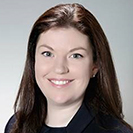 Laura Hobern is a Principal with LCP, she enjoys working with her clients and advising on a range of actuarial matters. Having worked directly for (re)insurers previously, she has broad experience covering topics such as reserving, pricing, portfolio analysis, business transfers, and management reporting. She has a particular interest in increasing the value that actuaries bring to the business, including through improvements to the reserving process and through better communication of results. Laura is an active volunteer with the IFoA, she is a committee member of the “London Market Actuaries’ Group” and of the “General Insurance Research and Thought Leadership Committee”, as well as a member of the “Towards the optimal reserving process” working party.
Laura Hobern is a Principal with LCP, she enjoys working with her clients and advising on a range of actuarial matters. Having worked directly for (re)insurers previously, she has broad experience covering topics such as reserving, pricing, portfolio analysis, business transfers, and management reporting. She has a particular interest in increasing the value that actuaries bring to the business, including through improvements to the reserving process and through better communication of results. Laura is an active volunteer with the IFoA, she is a committee member of the “London Market Actuaries’ Group” and of the “General Insurance Research and Thought Leadership Committee”, as well as a member of the “Towards the optimal reserving process” working party. - Workshop Tue, 25/05/2021 - 12:30 - 13:30 The Practicalities of Capital Allocation
-
Capital allocation is a key part of Solvency II and is required to be performed by each insurance undertaking as part of their annual ORSA. Over recent years, there has been increased focus on allocated capital from regulators (to ensure model stability and understanding of movements) and boards (to understand where best to deploy capital). There is no single capital allocation method that is best for all risk profiles, with the key challenge of separating movements due to changes in risk profile from simulation error.
In this presentation, we will explore this topic from both a regulatory perspective and in-house perspectives. We will
- Begin by describing a number of ways of capital allocation methodologies and where we have seen these used.
- Explore in further detail the SpreadVaR approach that is typically used in the Lloyd’s market, with particular focus on the collar and stability of results.
- Explain practical approaches that insurance firms can take to better understand the movements in post-diversified capital requirements.
The format of this event will be a presentation from 2 different perspectives: in-house and regulatory. We will only assume knowledge of statistical metrics; any further concepts will be introduced in the presentation.
Speakers:
 Alpesh Patel is a Senior Consulting Actuary at Barnett Waddingham. Alpesh has experience across a variety of roles in both Actuarial Functions and Risk Management Functions, both at a regulator and in-house. He has led internal model validation and ORSA exercises and has found capital allocation to be key in helping boards understand the key risks and opportunities in their exposures. He has a particular interest in bridging the communication gaps between Actuarial, Risk and the wider areas of businesses.
Alpesh Patel is a Senior Consulting Actuary at Barnett Waddingham. Alpesh has experience across a variety of roles in both Actuarial Functions and Risk Management Functions, both at a regulator and in-house. He has led internal model validation and ORSA exercises and has found capital allocation to be key in helping boards understand the key risks and opportunities in their exposures. He has a particular interest in bridging the communication gaps between Actuarial, Risk and the wider areas of businesses. Cameron Beveridge has worked at Lloyd’s for the past 5 years, and has been a qualified actuary and part of the syndicate capital team for the bulk of this time. This primarily involves in reviewing syndicate capital submissions, major model changes, and accompanying validation reports. Cameron has also contributed to market working groups and updating Lloyd’s guidance.
Cameron Beveridge has worked at Lloyd’s for the past 5 years, and has been a qualified actuary and part of the syndicate capital team for the bulk of this time. This primarily involves in reviewing syndicate capital submissions, major model changes, and accompanying validation reports. Cameron has also contributed to market working groups and updating Lloyd’s guidance.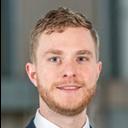 Matthew Bett is a Senior Consulting Actuary at Barnett Waddingham, providing advice and services to non-life insurance clients. Matt specialises in capital modelling and internal model validation, having previously worked within a Lloyd’s managing agent’s capital modelling team.
Matthew Bett is a Senior Consulting Actuary at Barnett Waddingham, providing advice and services to non-life insurance clients. Matt specialises in capital modelling and internal model validation, having previously worked within a Lloyd’s managing agent’s capital modelling team.Matt has managed validation projects for both Lloyd’s and non-Lloyd’s entities. Capital allocation has been a key focus of validation, for both business-as-usual and major model change applications. Matt also has experience in applying capital allocation methods for both regulatory reporting and internal model business use.
- Workshop Tue, 25/05/2021 - 14:30 - 15:30 Building your ESG Framework – what to know, and how to act!
-
ESG issues are now a significant focus for most Governments and Regulators. In particular, there are a number of regulatory requirements that need to be implemented over the course of 2021 and onwards. While many of us have a high-level awareness of the various issues at hand, we hope to provide a more detailed, tangible discussion around what sorts of things General Insurers should be thinking about and doing in this area.
We will be providing an overview of these requirements and areas that need to be considered, such as:
- The different types of climate-risks that should be considered;
- The Bank of England climate-related stress tests; and
- Disclosures.
Finally, we will be discussing what current ESG frameworks look like and what considerations should be taken in developing this framework further.
Speakers:
 Irina Velkova is an Associate Director in Grant Thornton’s Regulatory Advisory practice and part of Grant Thornton’s ESG subject-matter team. Her role includes advising firms on new and emerging regulations, implementing improved clients’ structures, business processes and models and working with Board of Directors and C-suite stakeholders on resolving governance and regulatory matters.
Irina Velkova is an Associate Director in Grant Thornton’s Regulatory Advisory practice and part of Grant Thornton’s ESG subject-matter team. Her role includes advising firms on new and emerging regulations, implementing improved clients’ structures, business processes and models and working with Board of Directors and C-suite stakeholders on resolving governance and regulatory matters. Khushil Modi is a Manager and Qualified General Insurance Actuary within Grant Thornton’s Actuarial and Risk team. He has experience assisting General Insurers in a number of areas including Reserving, Capital, and Exposure Management. Khushil is also a member of the IFoA’s “A Study of Major Hurricanes and Market Response” Working Party.
Khushil Modi is a Manager and Qualified General Insurance Actuary within Grant Thornton’s Actuarial and Risk team. He has experience assisting General Insurers in a number of areas including Reserving, Capital, and Exposure Management. Khushil is also a member of the IFoA’s “A Study of Major Hurricanes and Market Response” Working Party.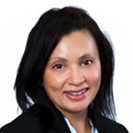 Sonia Shah is an Associate Director within Grant Thornton’s Financial Services Group and leads Grant Thornton’s ESG and Climate Risk team. She works closely with executive committees, boards and senior leadership teams on a wide range of projects including ESG, Climate Change, and Governance Frameworks.
Sonia Shah is an Associate Director within Grant Thornton’s Financial Services Group and leads Grant Thornton’s ESG and Climate Risk team. She works closely with executive committees, boards and senior leadership teams on a wide range of projects including ESG, Climate Change, and Governance Frameworks.

 Cherry Chan is a member of the IFoA council and she acts as Actuarial Function Holder to a number of clients. One of Cherry’s main areas of expertise is helping our clients on all aspects of Solvency II regulatory compliance, helping clients understand their risk potential, conducting stress and scenario testing and maximising their capital efficiency. Cherry works with clients on climate change through their ORSA processes and wider thought leadership.
Cherry Chan is a member of the IFoA council and she acts as Actuarial Function Holder to a number of clients. One of Cherry’s main areas of expertise is helping our clients on all aspects of Solvency II regulatory compliance, helping clients understand their risk potential, conducting stress and scenario testing and maximising their capital efficiency. Cherry works with clients on climate change through their ORSA processes and wider thought leadership. Matt Bett is a senior consulting actuary within the BW Insurance Consulting team, providing advice and services to non-life insurance clients. Matt specialises in capital modelling and internal model validation, having previously worked hands-on within a Lloyd’s managing agent’s capital modelling team.
Matt Bett is a senior consulting actuary within the BW Insurance Consulting team, providing advice and services to non-life insurance clients. Matt specialises in capital modelling and internal model validation, having previously worked hands-on within a Lloyd’s managing agent’s capital modelling team. Wendy Kriz has 20 years of general insurance actuarial experience in consultancy, company market and Lloyd’s. Wendy is BW’s GI climate change expert and is a member of the IFoA Sustainability Board. Wendy’s experience extends to all areas of actuarial work including pricing, capital modelling and reserving. She is a model validation expert and passionate about good documentation.
Wendy Kriz has 20 years of general insurance actuarial experience in consultancy, company market and Lloyd’s. Wendy is BW’s GI climate change expert and is a member of the IFoA Sustainability Board. Wendy’s experience extends to all areas of actuarial work including pricing, capital modelling and reserving. She is a model validation expert and passionate about good documentation. Rayno Mostert is a South African actuary working on machine learning applications in insurance product pricing and development. His background is a mixture of actuarial science and computer science, and he completed his fellowship exams in general insurance with the Actuarial Society of South Africa. Currently he's based in London, and responsible for risk intelligence at Flock, a government- and VC-backed insurtech startup.
Rayno Mostert is a South African actuary working on machine learning applications in insurance product pricing and development. His background is a mixture of actuarial science and computer science, and he completed his fellowship exams in general insurance with the Actuarial Society of South Africa. Currently he's based in London, and responsible for risk intelligence at Flock, a government- and VC-backed insurtech startup. Chris Paterson is an actuary in the Insurance and Investment team at the Government Actuary’s Department. He leads GAD’s work on disaster risk finance with clients including the FCDO, World Bank and the Centre for Disaster Protection. Prior to working for GAD Chris worked as a consultant and actuary for KPMG. He is on the IFOA’s Sustainability Research and CPD Committee.
Chris Paterson is an actuary in the Insurance and Investment team at the Government Actuary’s Department. He leads GAD’s work on disaster risk finance with clients including the FCDO, World Bank and the Centre for Disaster Protection. Prior to working for GAD Chris worked as a consultant and actuary for KPMG. He is on the IFOA’s Sustainability Research and CPD Committee. Georgina Bedenham is an actuary in the Insurance and Investment team at the Government Actuary’s Department. Her work covers a variety of different areas including disaster risk financing in developing countries, insurance arrangements within the public sector and contingent liabilities across government. Georgina has been involved in a number of recent projects with the Centre for Disaster Protection, the Foreign, Commonwealth and Development Office and the International Federation of Red Cross and Red Crescent Societies using actuarial and risk management expertise to help support the work these organisations are doing to help those most in need
Georgina Bedenham is an actuary in the Insurance and Investment team at the Government Actuary’s Department. Her work covers a variety of different areas including disaster risk financing in developing countries, insurance arrangements within the public sector and contingent liabilities across government. Georgina has been involved in a number of recent projects with the Centre for Disaster Protection, the Foreign, Commonwealth and Development Office and the International Federation of Red Cross and Red Crescent Societies using actuarial and risk management expertise to help support the work these organisations are doing to help those most in need Nutan Rajguru is Head of Analytics for Verisk Europe where she leads a team of Data Scientists and Actuaries in developing peril specific underwriting models for a range of general insurance lines.
Nutan Rajguru is Head of Analytics for Verisk Europe where she leads a team of Data Scientists and Actuaries in developing peril specific underwriting models for a range of general insurance lines. Shani Clarke is an Associate Actuarial Consultant for Verisk Europe. Through her role, she is working closely on external US data available for London Market syndicates.
Shani Clarke is an Associate Actuarial Consultant for Verisk Europe. Through her role, she is working closely on external US data available for London Market syndicates. Anthony Hill has worked within the insurance recruitment industry for over fourteen years, focusing on analytics hires for the entirety of this time. Starting his career at Darwin Rhodes as a consultant, he worked his way up to leading the Non-life Actuarial Team over a period of seven years. He also held the position of Principal at Eames Consulting, concentrating on mid-senior level hires across the Non-life market. Anthony joined Arthur Financial in 2017 to lead the Actuarial, Risk and Analytics Teams and to further grow the company’s client base.
Anthony Hill has worked within the insurance recruitment industry for over fourteen years, focusing on analytics hires for the entirety of this time. Starting his career at Darwin Rhodes as a consultant, he worked his way up to leading the Non-life Actuarial Team over a period of seven years. He also held the position of Principal at Eames Consulting, concentrating on mid-senior level hires across the Non-life market. Anthony joined Arthur Financial in 2017 to lead the Actuarial, Risk and Analytics Teams and to further grow the company’s client base. Charlie Stone is a general insurance actuary with experience in reserving, pricing and capital for both personal lines and London Market insurers. He is currently focussing on applying ideas from data science to actuarial work, including leading the design and development of LCP InsurSight, LCP's reserving analytics platform for general insurers.
Charlie Stone is a general insurance actuary with experience in reserving, pricing and capital for both personal lines and London Market insurers. He is currently focussing on applying ideas from data science to actuarial work, including leading the design and development of LCP InsurSight, LCP's reserving analytics platform for general insurers.  Paul Moorshead is currently GI Actuarial Reserving Lead in Aviva’s Global GI and AIL Actuarial Function. He is a fellow of both the IFoA and the CII, as well as a Certified Enterprise Risk Actuary and has over 25 years of actuarial experience. He is focussed on leading and developing best practice in reserving and beyond, including regularly sharing advice, training and support on his actuarial knowledge sharing YouTube channel.
Paul Moorshead is currently GI Actuarial Reserving Lead in Aviva’s Global GI and AIL Actuarial Function. He is a fellow of both the IFoA and the CII, as well as a Certified Enterprise Risk Actuary and has over 25 years of actuarial experience. He is focussed on leading and developing best practice in reserving and beyond, including regularly sharing advice, training and support on his actuarial knowledge sharing YouTube channel. Tom Durkin heads up LCP’s insurance consulting practice. He works with a range of insurers on all areas of insurance actuarial work. Tom is also a Non-Executive Director, has held a number of Chief Actuary roles and acts as Independent Expert for Part VII insurance transfers.
Tom Durkin heads up LCP’s insurance consulting practice. He works with a range of insurers on all areas of insurance actuarial work. Tom is also a Non-Executive Director, has held a number of Chief Actuary roles and acts as Independent Expert for Part VII insurance transfers. Gráinne McGuire is a Director at Taylor Fry, an Australian and New Zealand based analytics and actuarial consultancy. She has a strong interest in the use of statistical and machine learning techniques and has published a number of papers and a monograph on reserving using these techniques. She also has experience in using these techniques in injury schemes reserving and in government analytics. She is currently leading the Foundations workstream of the MLR WP, which focuses on providing teaching examples to help those getting started on their machine learning journey.
Gráinne McGuire is a Director at Taylor Fry, an Australian and New Zealand based analytics and actuarial consultancy. She has a strong interest in the use of statistical and machine learning techniques and has published a number of papers and a monograph on reserving using these techniques. She also has experience in using these techniques in injury schemes reserving and in government analytics. She is currently leading the Foundations workstream of the MLR WP, which focuses on providing teaching examples to help those getting started on their machine learning journey. Jacky Poon is the Head of Finance at nib Travel, the travel insurance division of nib Health Funds. His past experience includes commercial and pricing analytics. As well as being a member of the IFoA MLR WP, he is also the current Convenor of the Young Data Analytics Working Group and leads the monthly Data Analytics Newsletter for Australian Actuaries Institute members. He has a keen interest in research on the use of data analytics and machine learning techniques to complement the traditional actuarial skillset in insurance.
Jacky Poon is the Head of Finance at nib Travel, the travel insurance division of nib Health Funds. His past experience includes commercial and pricing analytics. As well as being a member of the IFoA MLR WP, he is also the current Convenor of the Young Data Analytics Working Group and leads the monthly Data Analytics Newsletter for Australian Actuaries Institute members. He has a keen interest in research on the use of data analytics and machine learning techniques to complement the traditional actuarial skillset in insurance.  Bharat Raj is an actuarial consultant with Grant Thornton specialising in the UK general insurance sector. He assists clients across a broad range of technical areas including the development, calibration and validation of capital models, IFRS17 implementation, process re-engineering, reserving, pricing and Solvency II. His clients include Lloyd’s managing agencies, personal lines insurers, reinsurers, run-off specialists, coverholders and captive (re)insurers. Bharat joined Grant Thornton six years ago and prior to that he held a number of senior capital modelling and model validation roles in the UK insurance industry including with ACE European Group Limited, Liberty Mutual Insurance Europe and Munich Re Underwriting. Before this he was a consultant at Towers Perrin.
Bharat Raj is an actuarial consultant with Grant Thornton specialising in the UK general insurance sector. He assists clients across a broad range of technical areas including the development, calibration and validation of capital models, IFRS17 implementation, process re-engineering, reserving, pricing and Solvency II. His clients include Lloyd’s managing agencies, personal lines insurers, reinsurers, run-off specialists, coverholders and captive (re)insurers. Bharat joined Grant Thornton six years ago and prior to that he held a number of senior capital modelling and model validation roles in the UK insurance industry including with ACE European Group Limited, Liberty Mutual Insurance Europe and Munich Re Underwriting. Before this he was a consultant at Towers Perrin. Alice Boreman, IFRS 17 working party
Alice Boreman, IFRS 17 working party Charl Cronje is a partner at LCP and an actuary with over 25 years’ experience. He has acted as an outsourced chief actuary for a number of insurers. He is also a Lloyd’s signing actuary and an Independent Expert on Part VII transfers. Charl and the LCP team recently published a report entitled “The Virtuous Cycle”, which provides a comprehensive guide to best practice in how the actuarial function and the board should work together.
Charl Cronje is a partner at LCP and an actuary with over 25 years’ experience. He has acted as an outsourced chief actuary for a number of insurers. He is also a Lloyd’s signing actuary and an Independent Expert on Part VII transfers. Charl and the LCP team recently published a report entitled “The Virtuous Cycle”, which provides a comprehensive guide to best practice in how the actuarial function and the board should work together. Matthew Pearlman is a partner at LCP and an actuary with over 30 years’ experience. He has acted as an outsourced chief actuary and has significant experience in how to run an effective actuarial function and how to communicate well with the board and other stakeholders.
Matthew Pearlman is a partner at LCP and an actuary with over 30 years’ experience. He has acted as an outsourced chief actuary and has significant experience in how to run an effective actuarial function and how to communicate well with the board and other stakeholders. Chris is a qualified actuary and has spent time working in reserving, pricing and capital functions within the Lloyd's market over the past 10 years. He joined Ki around a year ago as a Senior Portfolio Manager, helping set up the Portfolio Management function and deliver the first version of Ki's algorithm.
Chris is a qualified actuary and has spent time working in reserving, pricing and capital functions within the Lloyd's market over the past 10 years. He joined Ki around a year ago as a Senior Portfolio Manager, helping set up the Portfolio Management function and deliver the first version of Ki's algorithm. Melanie is a qualified actuary and machine learning post-graduate. She joined Ki in September as a Senior Portfolio Manager, and has worked in actuarial and more recently innovation roles within the Lloyd’s market over the past 10 years.
Melanie is a qualified actuary and machine learning post-graduate. She joined Ki in September as a Senior Portfolio Manager, and has worked in actuarial and more recently innovation roles within the Lloyd’s market over the past 10 years. Bernie Horovitz has spent 34 years in the insurance industry in various management, underwriting and actuarial roles. Prior to forming Y-Risk, Bernie worked at AXA XL Catlin leading the Global Professional business. He graduated from Allegheny College with a B.S. degree in Math. Bernie looks forward to continuing to live like a millennial even though the grey hairs are suggesting otherwise.
Bernie Horovitz has spent 34 years in the insurance industry in various management, underwriting and actuarial roles. Prior to forming Y-Risk, Bernie worked at AXA XL Catlin leading the Global Professional business. He graduated from Allegheny College with a B.S. degree in Math. Bernie looks forward to continuing to live like a millennial even though the grey hairs are suggesting otherwise. François Morissette is a Fellow of the Casualty Actuarial Society (FCAS), an Associate of the Canadian Institute of Actuaries (ACIA) as well as a Member of the American Academy of Actuaries (MAAA).
François Morissette is a Fellow of the Casualty Actuarial Society (FCAS), an Associate of the Canadian Institute of Actuaries (ACIA) as well as a Member of the American Academy of Actuaries (MAAA). Ronald Kozlowski is a consulting actuary with over 30 years of experience, working primarily in pricing, reserving and M&A due diligence. Ron spent 23 years at Towers Watson before starting his own consulting firm RTK Actuarial + Professional Services.
Ronald Kozlowski is a consulting actuary with over 30 years of experience, working primarily in pricing, reserving and M&A due diligence. Ron spent 23 years at Towers Watson before starting his own consulting firm RTK Actuarial + Professional Services. Edward Harrison is a consultant at LCP and specialises in advising insurers on their reserving and risk management, as well as providing outsourced actuarial function support. He has helped insurers with all aspects of their reserving, from process design and best practice governance, through to the calculation of IFRS reserves and SII technical provisions. He is a member of the IFoA “towards the optimal reserving process” working party and has a keen interest in the use of automation to help enhance reserving processes.
Edward Harrison is a consultant at LCP and specialises in advising insurers on their reserving and risk management, as well as providing outsourced actuarial function support. He has helped insurers with all aspects of their reserving, from process design and best practice governance, through to the calculation of IFRS reserves and SII technical provisions. He is a member of the IFoA “towards the optimal reserving process” working party and has a keen interest in the use of automation to help enhance reserving processes. Laura Hobern is a Principal with LCP, she enjoys working with her clients and advising on a range of actuarial matters. Having worked directly for (re)insurers previously, she has broad experience covering topics such as reserving, pricing, portfolio analysis, business transfers, and management reporting. She has a particular interest in increasing the value that actuaries bring to the business, including through improvements to the reserving process and through better communication of results. Laura is an active volunteer with the IFoA, she is a committee member of the “London Market Actuaries’ Group” and of the “General Insurance Research and Thought Leadership Committee”, as well as a member of the “Towards the optimal reserving process” working party.
Laura Hobern is a Principal with LCP, she enjoys working with her clients and advising on a range of actuarial matters. Having worked directly for (re)insurers previously, she has broad experience covering topics such as reserving, pricing, portfolio analysis, business transfers, and management reporting. She has a particular interest in increasing the value that actuaries bring to the business, including through improvements to the reserving process and through better communication of results. Laura is an active volunteer with the IFoA, she is a committee member of the “London Market Actuaries’ Group” and of the “General Insurance Research and Thought Leadership Committee”, as well as a member of the “Towards the optimal reserving process” working party. Alpesh Patel is a Senior Consulting Actuary at Barnett Waddingham. Alpesh has experience across a variety of roles in both Actuarial Functions and Risk Management Functions, both at a regulator and in-house. He has led internal model validation and ORSA exercises and has found capital allocation to be key in helping boards understand the key risks and opportunities in their exposures. He has a particular interest in bridging the communication gaps between Actuarial, Risk and the wider areas of businesses.
Alpesh Patel is a Senior Consulting Actuary at Barnett Waddingham. Alpesh has experience across a variety of roles in both Actuarial Functions and Risk Management Functions, both at a regulator and in-house. He has led internal model validation and ORSA exercises and has found capital allocation to be key in helping boards understand the key risks and opportunities in their exposures. He has a particular interest in bridging the communication gaps between Actuarial, Risk and the wider areas of businesses. Cameron Beveridge has worked at Lloyd’s for the past 5 years, and has been a qualified actuary and part of the syndicate capital team for the bulk of this time. This primarily involves in reviewing syndicate capital submissions, major model changes, and accompanying validation reports. Cameron has also contributed to market working groups and updating Lloyd’s guidance.
Cameron Beveridge has worked at Lloyd’s for the past 5 years, and has been a qualified actuary and part of the syndicate capital team for the bulk of this time. This primarily involves in reviewing syndicate capital submissions, major model changes, and accompanying validation reports. Cameron has also contributed to market working groups and updating Lloyd’s guidance. Matthew Bett is a Senior Consulting Actuary at Barnett Waddingham, providing advice and services to non-life insurance clients. Matt specialises in capital modelling and internal model validation, having previously worked within a Lloyd’s managing agent’s capital modelling team.
Matthew Bett is a Senior Consulting Actuary at Barnett Waddingham, providing advice and services to non-life insurance clients. Matt specialises in capital modelling and internal model validation, having previously worked within a Lloyd’s managing agent’s capital modelling team. Irina Velkova is an Associate Director in Grant Thornton’s Regulatory Advisory practice and part of Grant Thornton’s ESG subject-matter team. Her role includes advising firms on new and emerging regulations, implementing improved clients’ structures, business processes and models and working with Board of Directors and C-suite stakeholders on resolving governance and regulatory matters.
Irina Velkova is an Associate Director in Grant Thornton’s Regulatory Advisory practice and part of Grant Thornton’s ESG subject-matter team. Her role includes advising firms on new and emerging regulations, implementing improved clients’ structures, business processes and models and working with Board of Directors and C-suite stakeholders on resolving governance and regulatory matters. Khushil Modi is a Manager and Qualified General Insurance Actuary within Grant Thornton’s Actuarial and Risk team. He has experience assisting General Insurers in a number of areas including Reserving, Capital, and Exposure Management. Khushil is also a member of the IFoA’s “A Study of Major Hurricanes and Market Response” Working Party.
Khushil Modi is a Manager and Qualified General Insurance Actuary within Grant Thornton’s Actuarial and Risk team. He has experience assisting General Insurers in a number of areas including Reserving, Capital, and Exposure Management. Khushil is also a member of the IFoA’s “A Study of Major Hurricanes and Market Response” Working Party. Sonia Shah is an Associate Director within Grant Thornton’s Financial Services Group and leads Grant Thornton’s ESG and Climate Risk team. She works closely with executive committees, boards and senior leadership teams on a wide range of projects including ESG, Climate Change, and Governance Frameworks.
Sonia Shah is an Associate Director within Grant Thornton’s Financial Services Group and leads Grant Thornton’s ESG and Climate Risk team. She works closely with executive committees, boards and senior leadership teams on a wide range of projects including ESG, Climate Change, and Governance Frameworks.